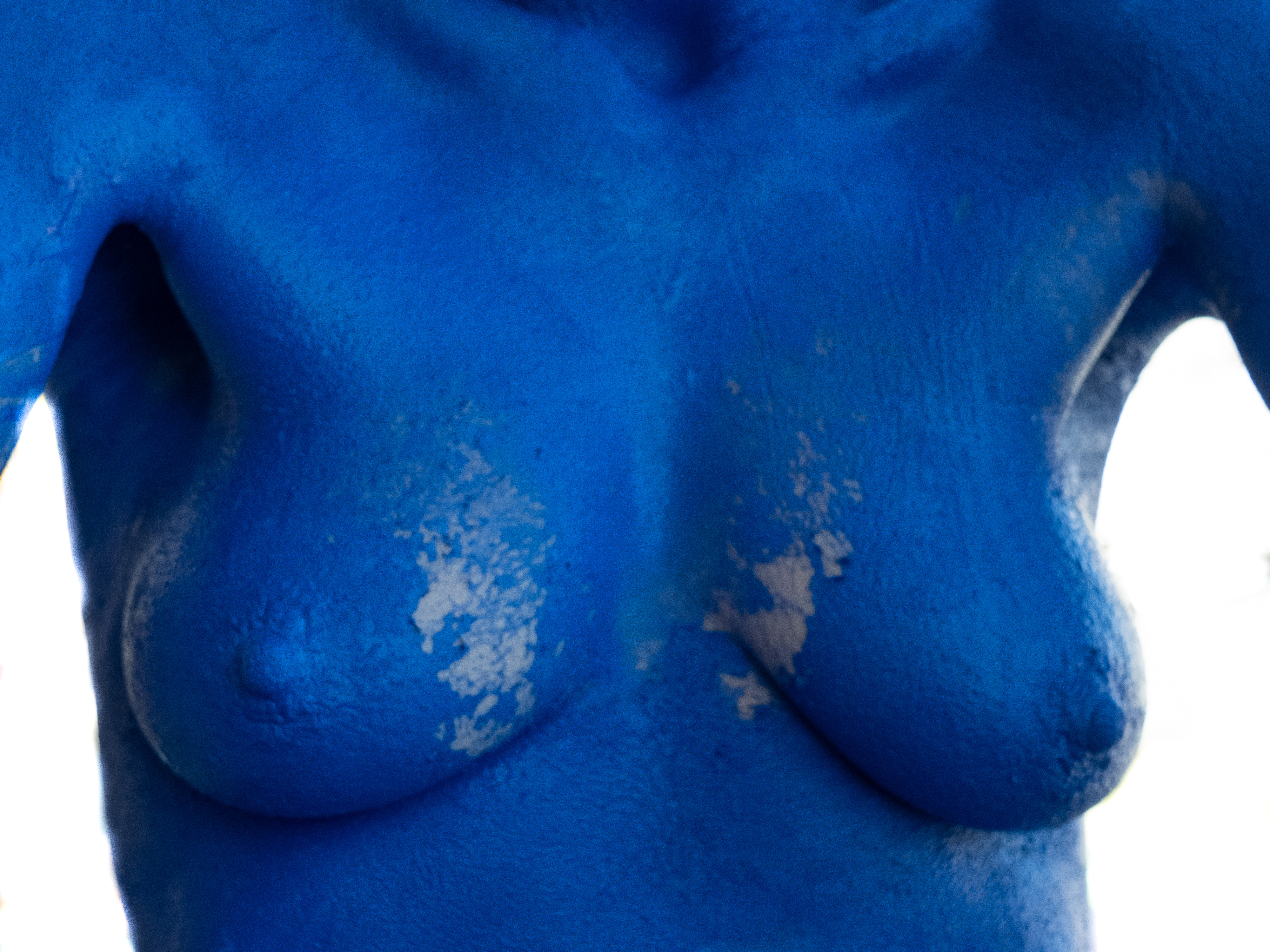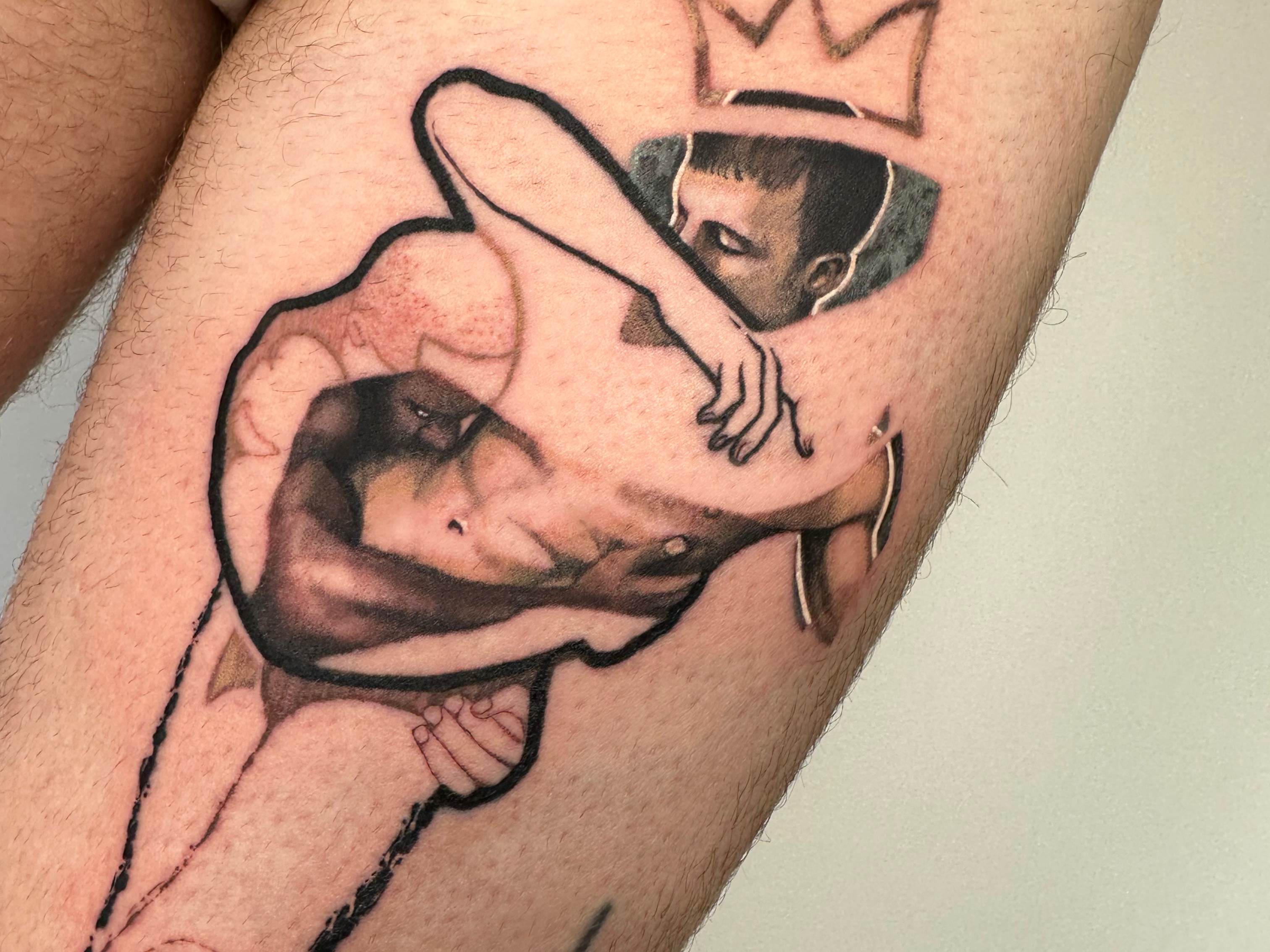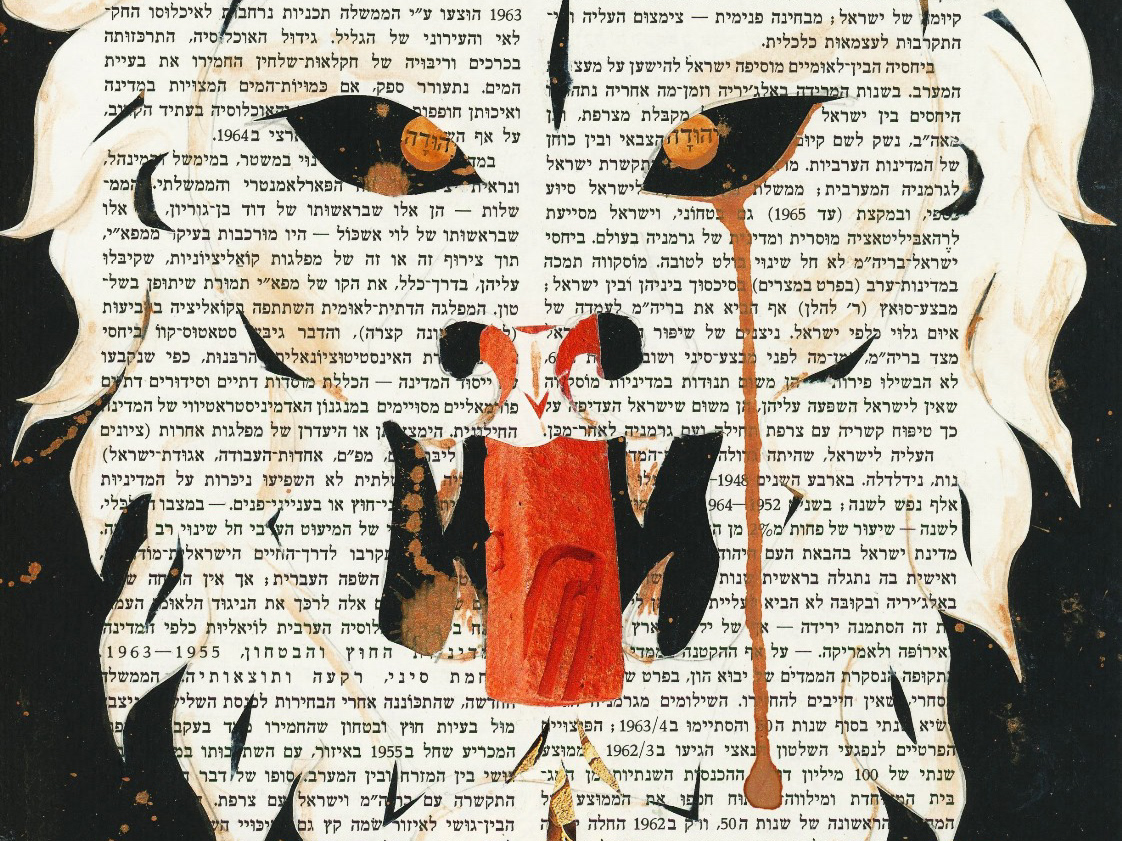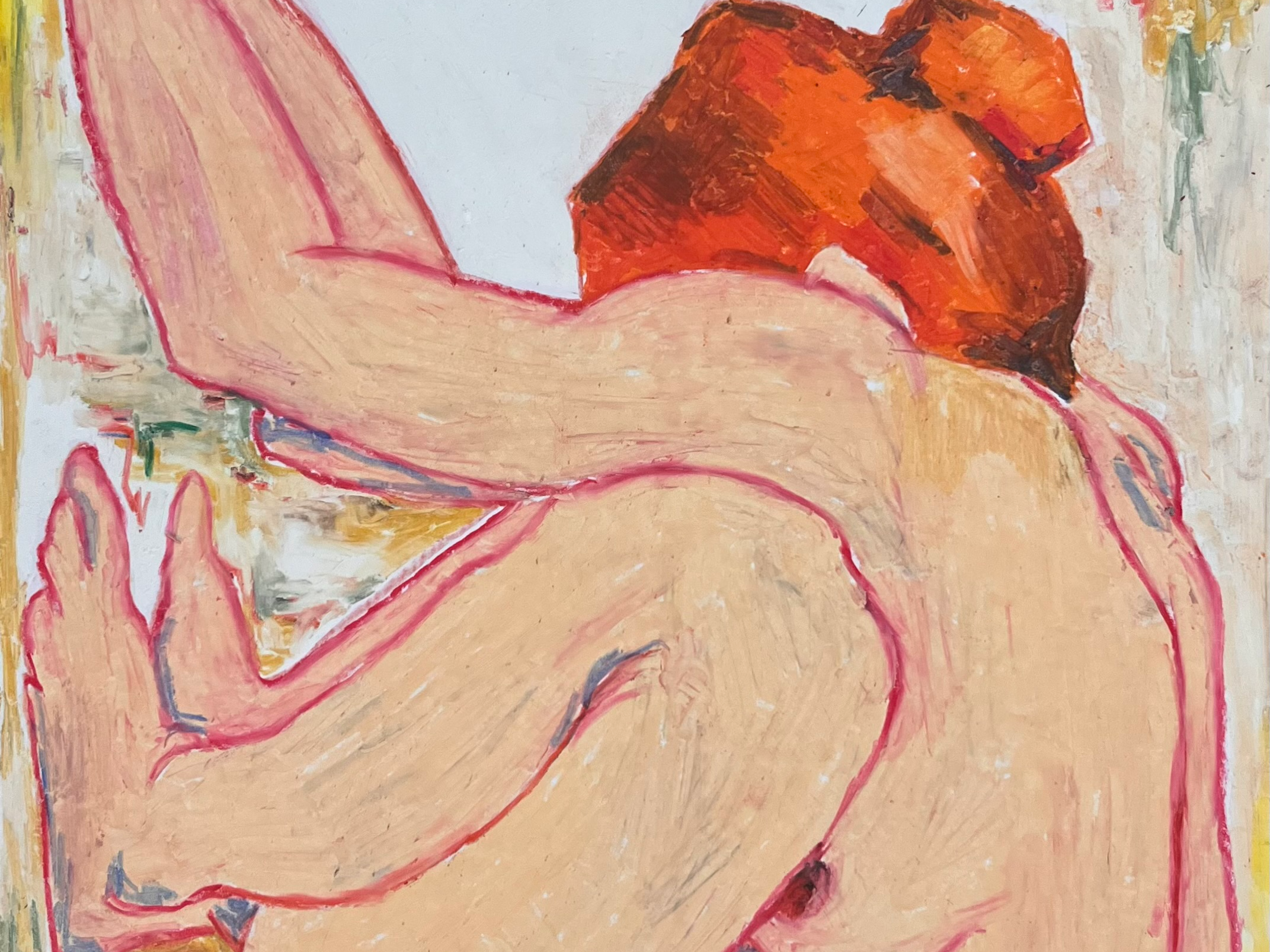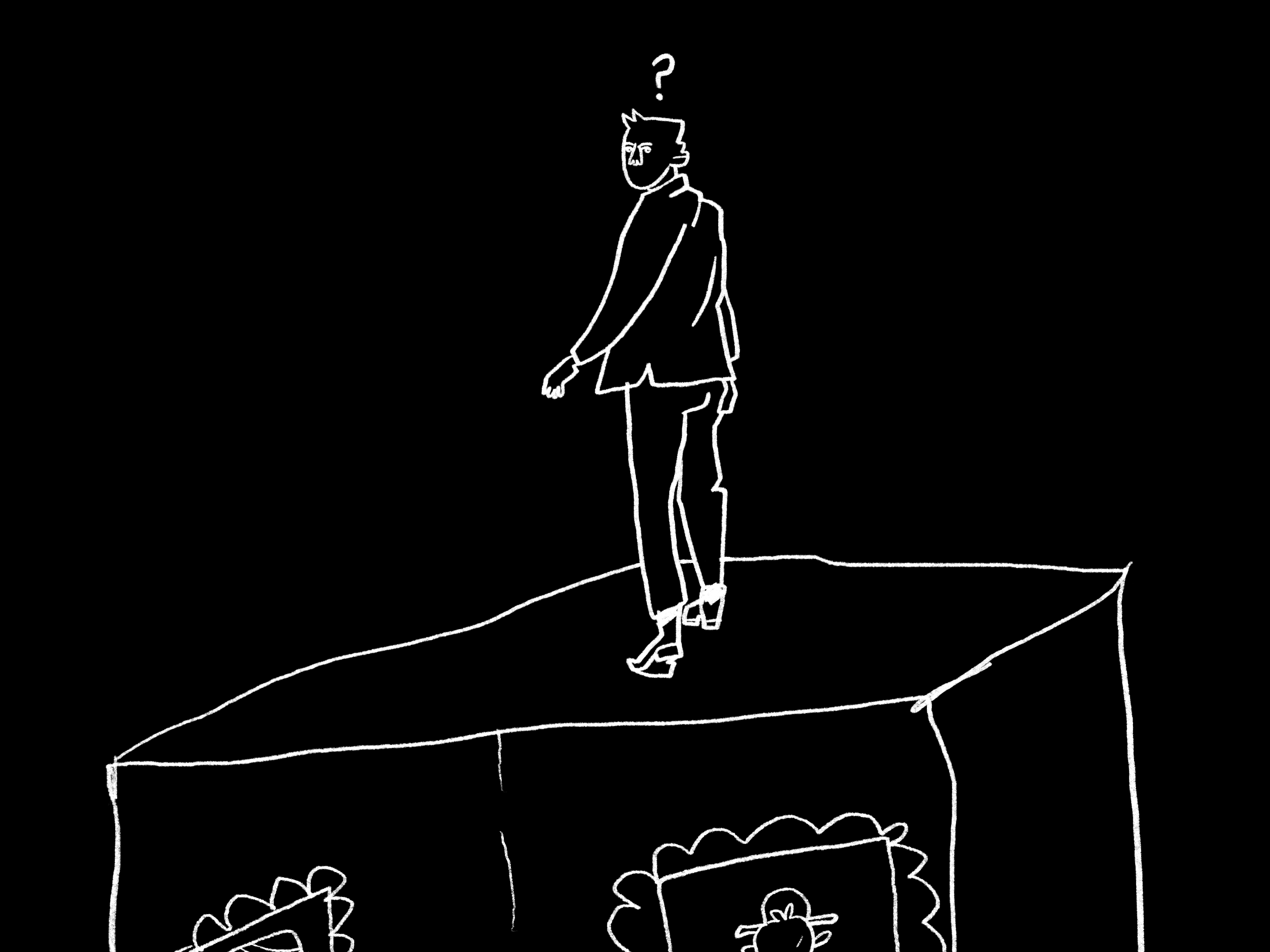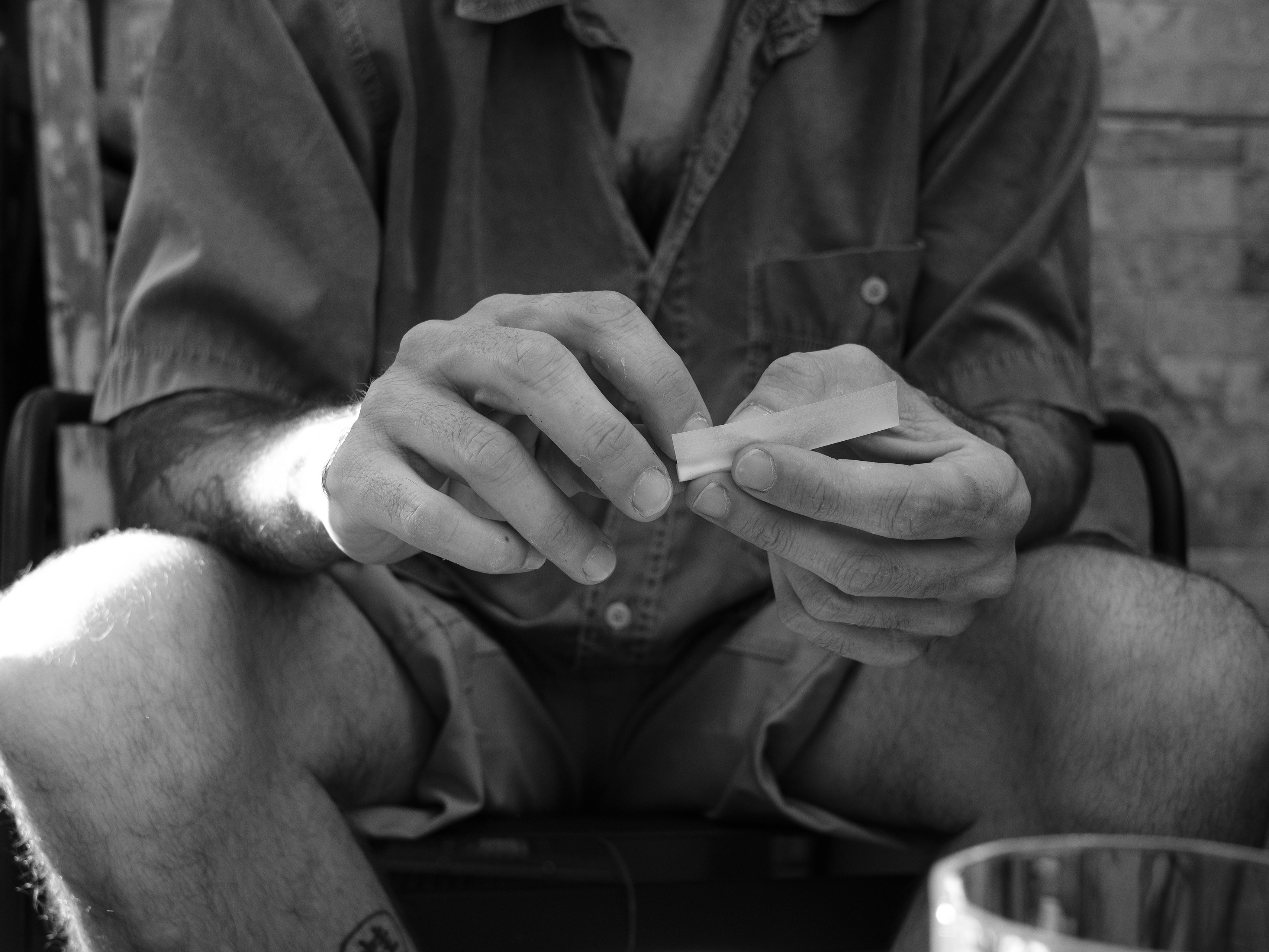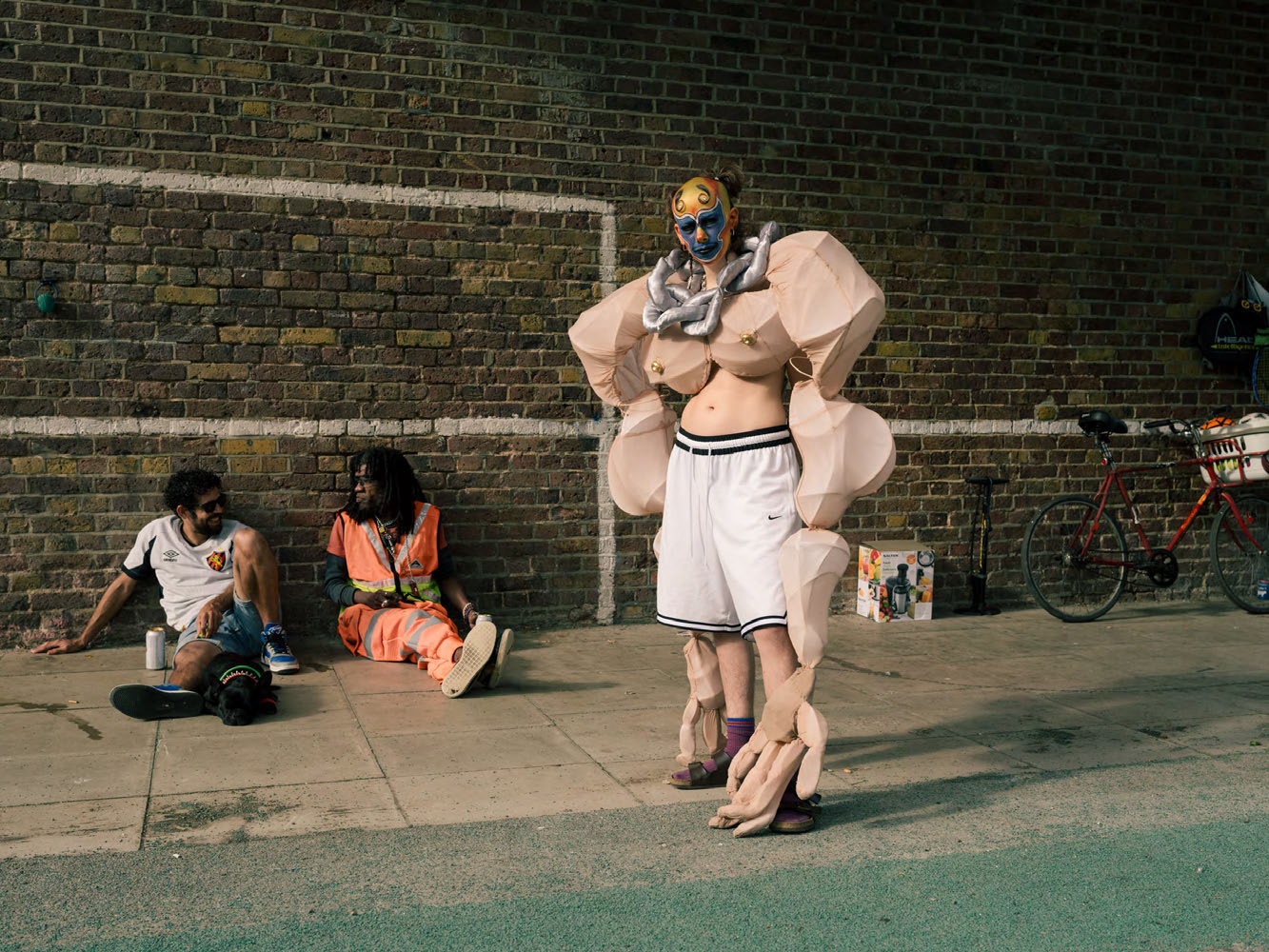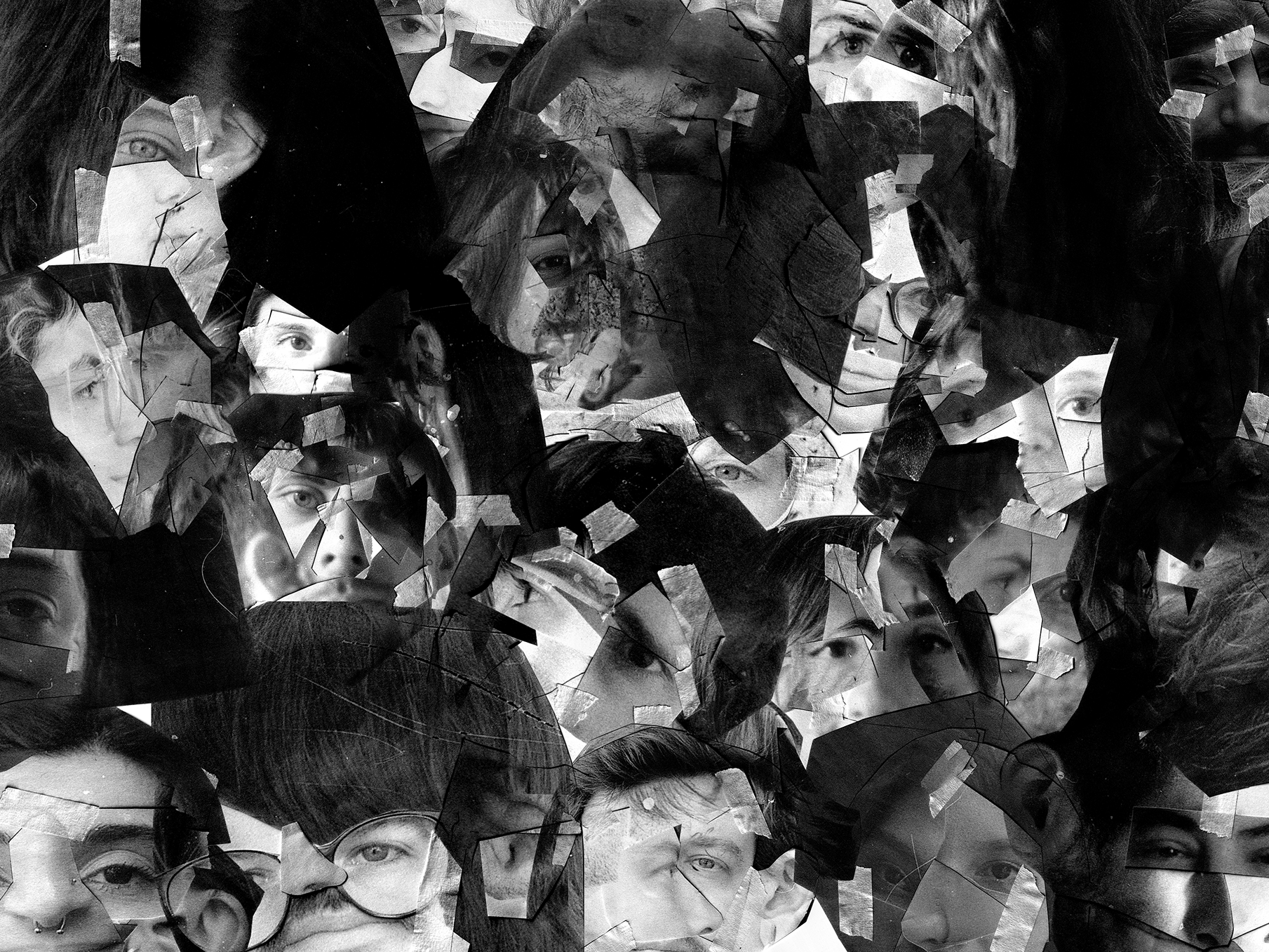Femininity, Woven In
Reported by Adam Karev and Elijah Kagan
You may have seen Liza Mamali’s work in Tel Aviv: crochet pieces interwoven with metal chains, adorning city benches. Perhaps you've heard of her following the "Proud vulvas" exhibition at Kuli Alma last year. Now working from her flat in hadar, haifa—once a studio and now a sanctuary brimming with fabric and yarns—Mamali shares her journey. This space, embroidered with creativity, showcases her transformation of traditional crochet into a radical expression of identity, earning her the nickname “Crochet Queen.”
Originally a photographer and filmmaker, mamali’s move to israel over a decade ago marked a pivotal shift to textile art.
“I used to do a lot of photography and a bit of filmmaking, trying different techniques. Then I started combining my crocheting with the pictures I was taking. I was doing film photography, and I started to print them on fabric and add extra layers of textile. This led to my first exhibition. After that, I ventured into street art, specifically textile-based, known as yarn bombing."
This evolution reveals a deeper truth: the medium is a vessel of identity, fluid and adaptable to the artist’s evolving self-understanding. For Mamali, crochet is not just a technique but a conduit for meditation, allowing her to stitch her thoughts into a cohesive narrative. Her signature series, "Proud Vulvas," exemplifies this synthesis of medium and identity."This project is very special to me. Before I started it, I used many feminine shapes in my work, I just didn't call it that way. But then I decided, let's make them proud. The main idea is to amplify feminine energy in this world to create balance because I believe there should be balance. And obviously, nowadays, there's much more masculine energy around."
In the exhibition, Mamali reclaimed the vulva, a symbol often ensnared in societal taboos, and thrust it into the limelight with large installations of yarn and scrap textiles rendered in vibrant colors and intricate textures. This bold visual presentation not only challenges but actively dismantles long-standing societal norms dictating the portrayal and perception of female anatomy. The "Proud Vulvas" series operates on multiple levels: it is both a jubilant celebration of womanhood and a fierce confrontation of the stigmas attached to female sexuality. By placing these typically concealed forms at the forefront of her work, Mamali invites viewers to reassess and celebrate the feminine mystique as a wellspring of birth and creativity, rather than a subject of shame or concealment.
For emerging artists, Mamali's approach offers a crucial lesson in the power of confronting significant themes directly. Her art becomes a shield against criticism and a loudspeaker for change, showcasing how creative expression can be a form of activism, healing, and celebration of individual identity. The concept of birth in mamali's work extends beyond the literal into the metaphorical. Each piece she creates is a rebirth, a new narrative spun from old stories. Her use of recycled materials speaks to the rebirth of resources, transforming discarded textiles into art that speaks, breathes, and lives. It’s a call to environmental consciousness, reminding us of art’s potential to regenerate and transform not just ideas but the world around us.
Mamali's journey from the pulsating energy of Tel Aviv to the reflective spaces of Haifa mirrors her internal transition from public exhibitions to intimate, personal creations. She advises all artists:
“I really recommend for all artists, no matter which media, just to go out and interact with the environment. It's like, this is the true story when you go out there and perform, no matter how many people are watching, and this is great."
Liza Mamali’s work is a beacon for emerging artists, particularly women, who seek to understand their own beginnings and potential. Her career is a powerful reminder that we are all continuously capable of reinvention and discovery. Through her, we see that art is not just creation; it is the creator continually reborn, always pushing towards new horizons.
Aspiring artists, take note: your journey may be fraught with uncertainty and challenges, but like mamali, you have the potential to craft a path uniquely yours, rich with the threads of your own stories, waiting to be woven into the expansive tapestry of art.
Femininity, Woven In was originally published in June 2024 as part of UNHiNGED #3, Rebirth Reborn. The full edition is available for physical or digital download on our store.


